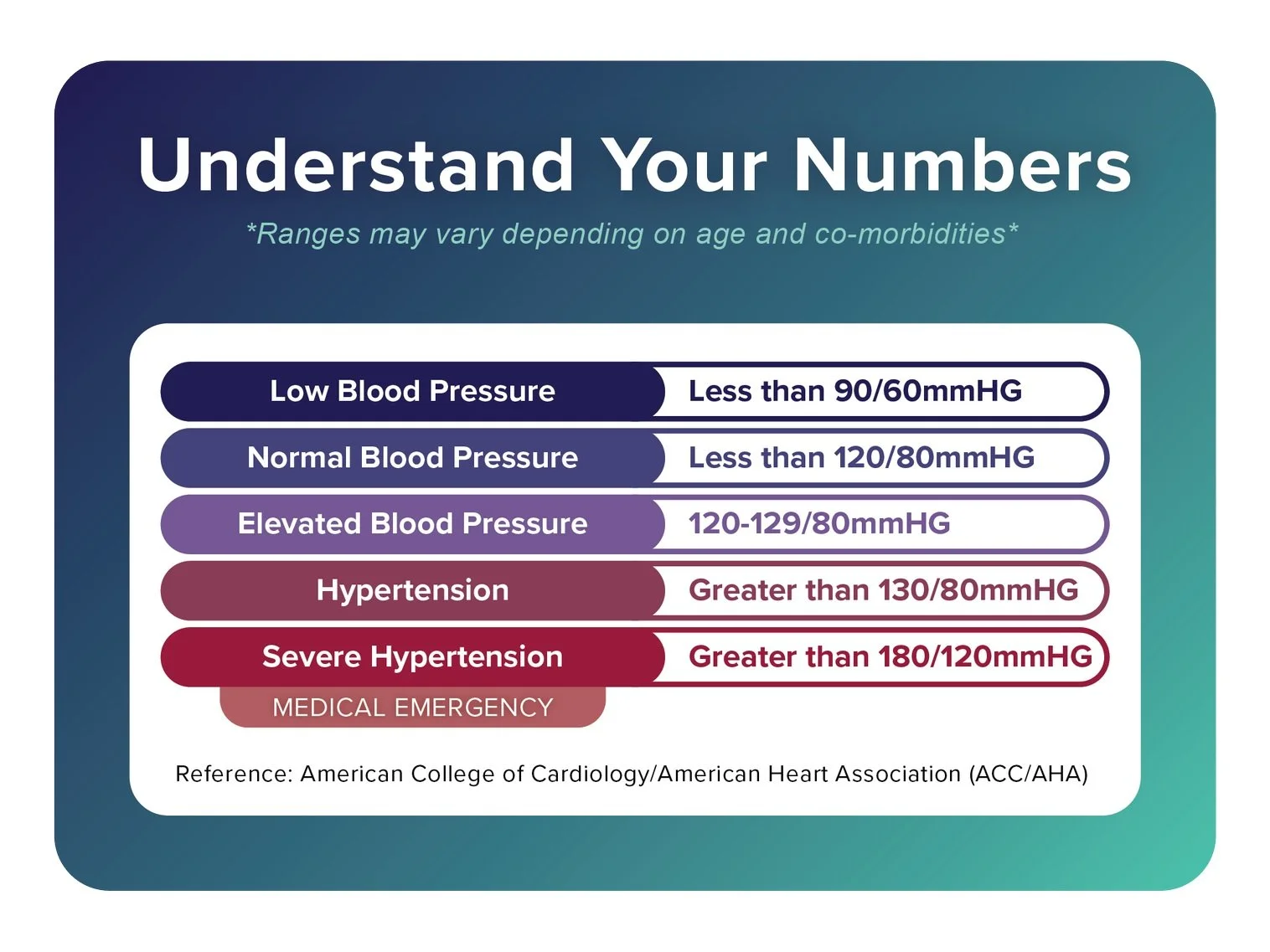Understanding Your Blood Pressure
Nearly half of the adults in the United States are living with hypertension and many are unaware they have it. Hypertension is also known as the “silent killer” because it can present without warning signs or symptoms. If untreated, hypertension can lead to severe health complications like heart disease, stroke, kidney disease, and blindness. The best way to know your blood pressure is to have it tested. Adults without a history of hypertension should have their blood pressure checked at least annually by a healthcare provider or pharmacist. Blood pressure should be evaluated more frequently in adults with specific risk factors for hypertension.
If you are diagnosed with hypertension:
Incorporate a healthy diet and physical activity into your lifestyle to help lower your blood pressure and reduce your risk for adverse health events.
Manage your stress levels, as this can quickly spike your blood pressure.
Manage your comorbidities. Untreated comorbidities such as sleep apnea, vitamin d deficiency, hypothyroidism, obesity, and diabetes can increase blood pressure.
Be careful with OTC medications. Certain pain relievers, NSAIDS, and cold medicines that contain decongestants can cause an elevation in your blood pressure.
Take your prescription medication as prescribed for maximum benefit. Contact your healthcare provider or pharmacist for questions about your blood pressure or medication regimen.
The information provided is for educational purposes and should not be used during any medical emergency or for the diagnosis or treatment of any conditions. Consult with your medical provider for diagnosis and treatment of all medical conditions. Call 911 for medical emergencies.
